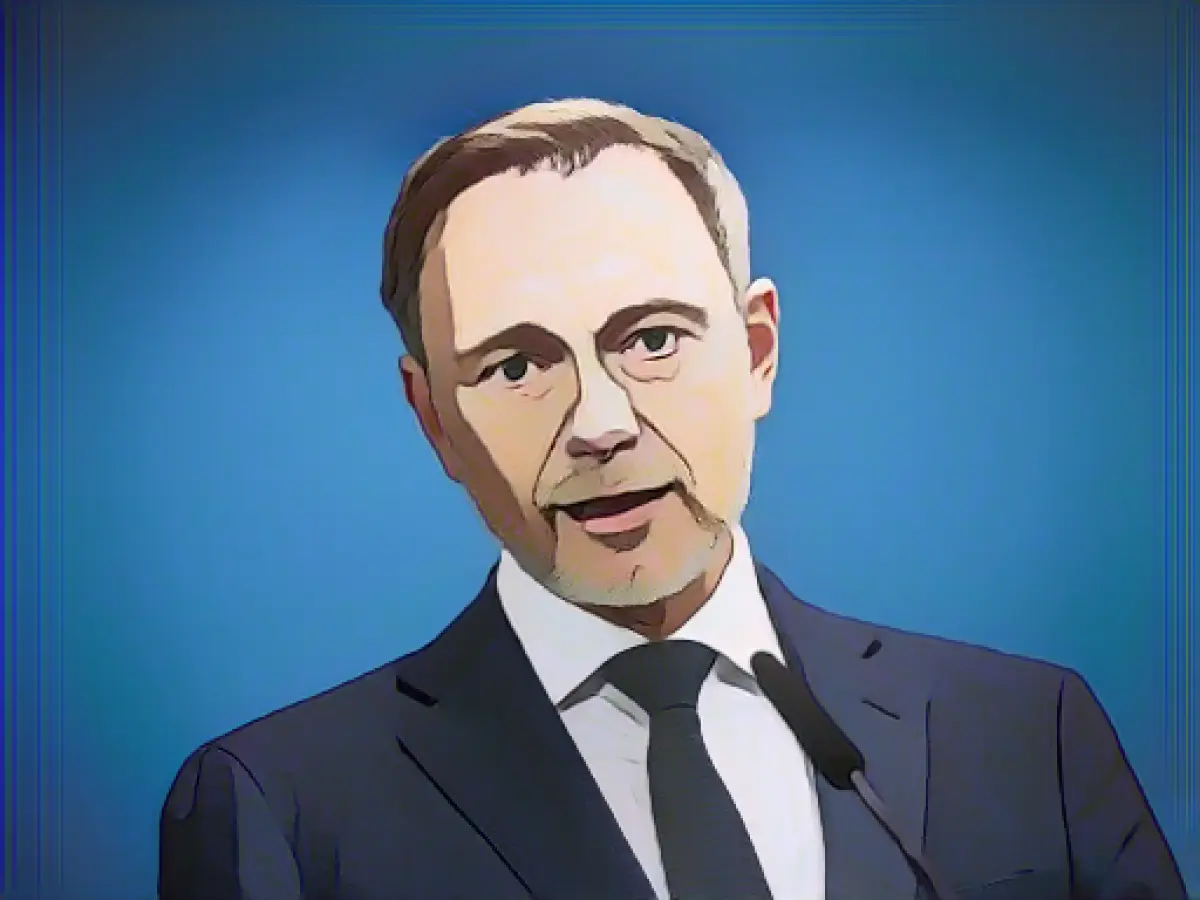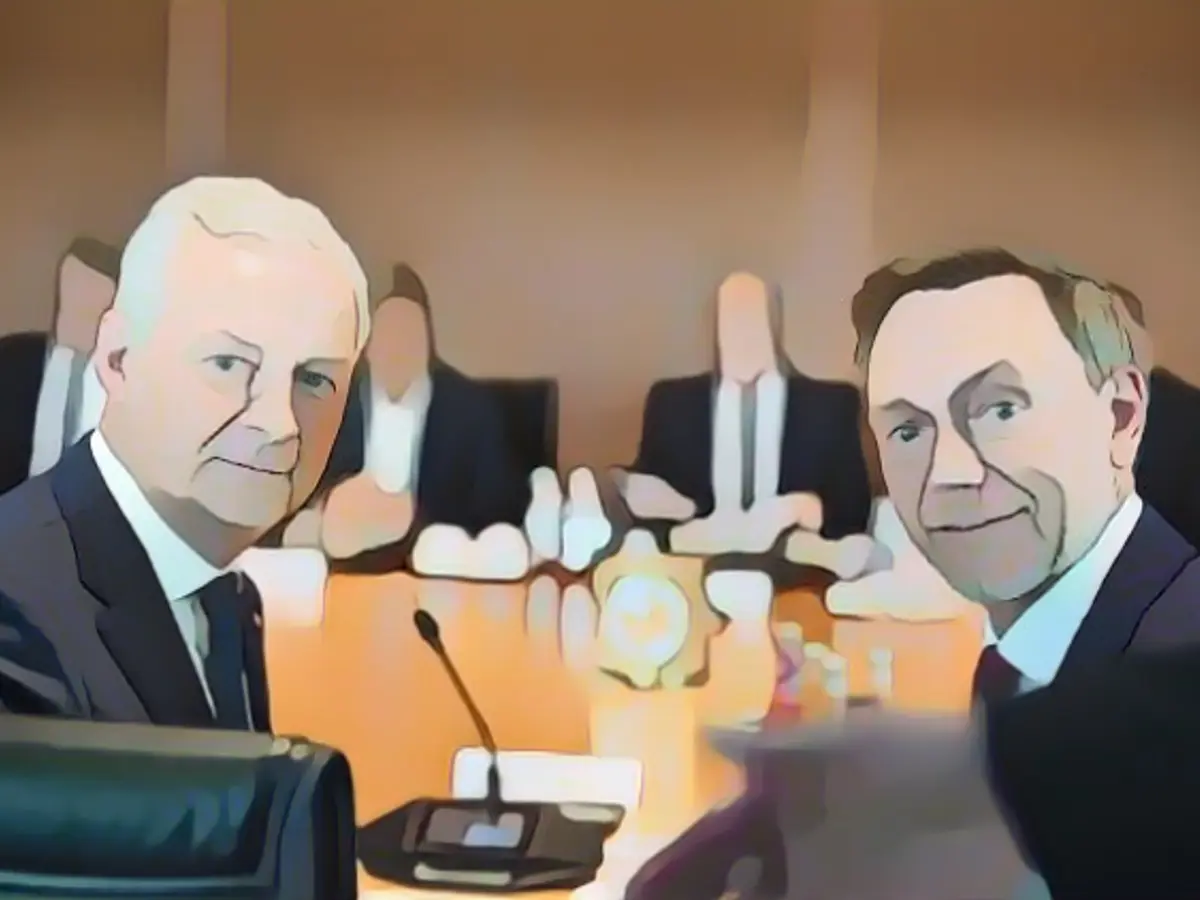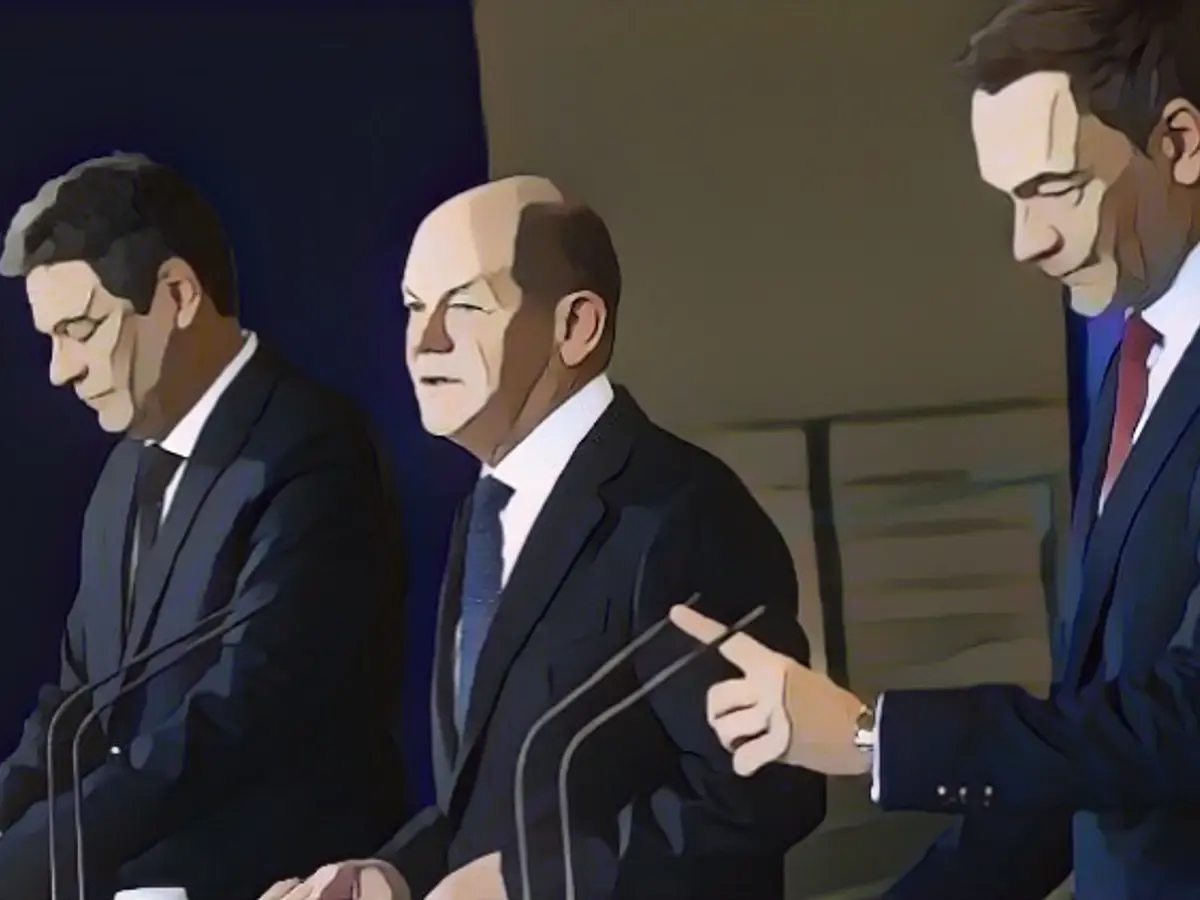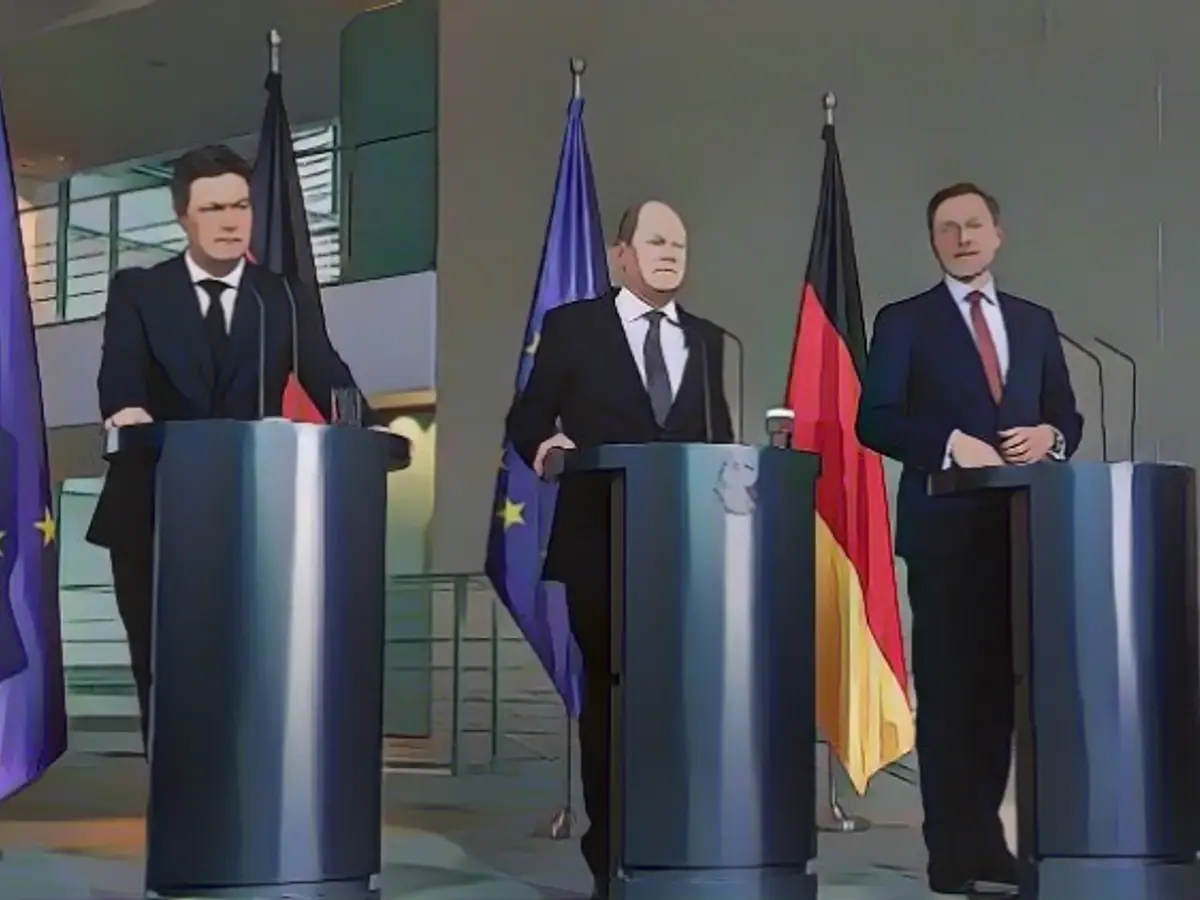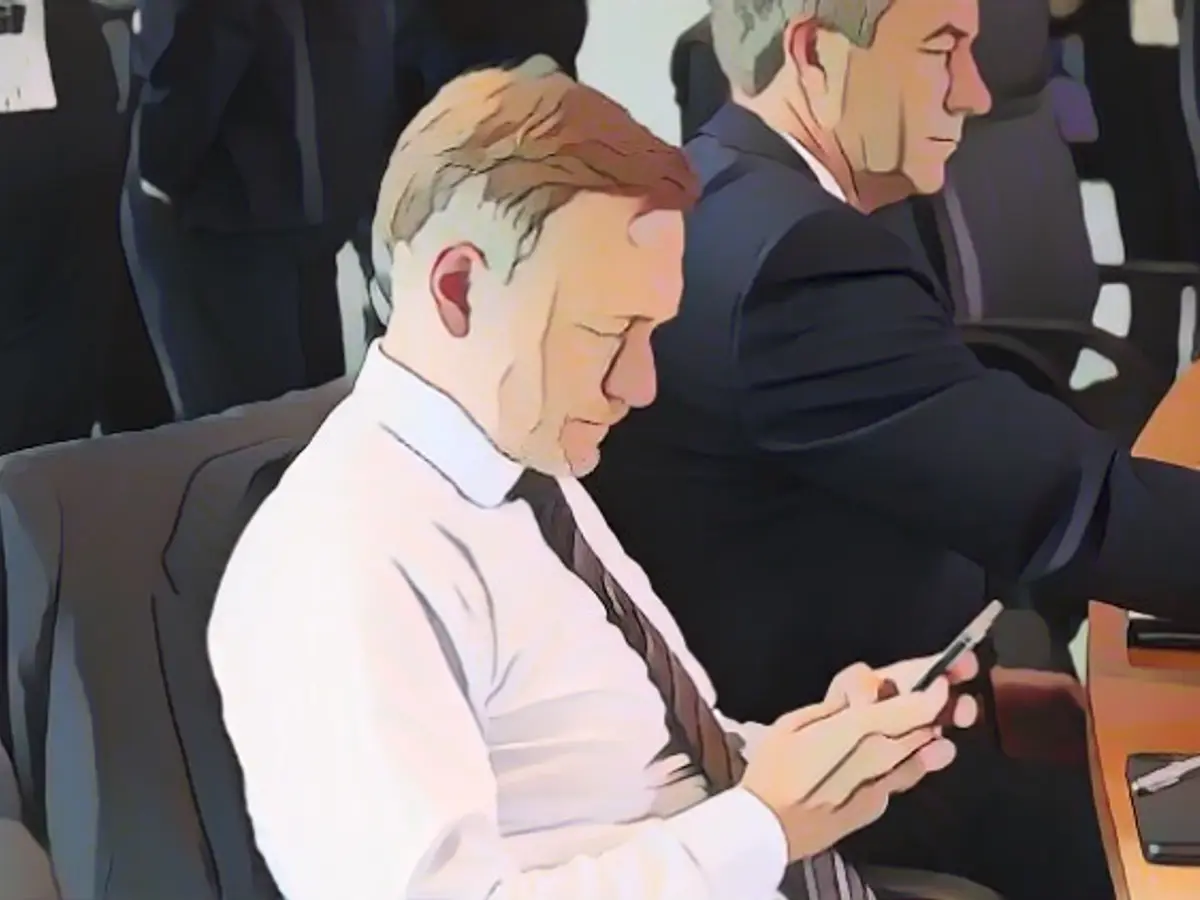Budget Chaos Unfolds as Bundesrat Gathers - Karlsruhe Ruling Casts Uncertainty
This Friday, the Bundesrat convenes for the first time since the controversial Karlsruhe budget ruling. The federal states are puzzled over which of the federal government's financial commitments remain valid, as the Federal Constitutional Court deemed the 60 billion euro reallocation in the 2021 budget null and void last week. In response, Federal Finance Minister Christian Lindner (FDP) urged the coalition government to make savings to navigate the financial crisis. "We're searching for significant savings," Lindner told Handelsblatt, alluding to double-digit billion contributions each year.
Coalition Seeks Debt Brake Exemption to Overcome Crisis
Consequent to the Karlsruhe budget ruling, the "Ampel" coalition strives to exploit the debt brake exemption for 2023. Lindner is slated to propose a supplementary budget to the cabinet next week, following conversations with Chancellor Olaf Scholz (SPD) and Vice-Chancellor Robert Habeck (Greens). The federal government will advocate declaring an extraordinary emergency situation in the Bundestag, ensuring retrospective legal protection for loans already disbursed this year.
The Judgment Impacting Climate Protection and Economic Modernization Funds
The Karlsruhe ruling concerns funds initially approved as coronavirus loans but intended for subsequent utilization in climate protection and economic modernization projects. The judges ruled that emergency loans cannot be segregated for future years, placing additional billions at risk.
Growth Opportunities Act and Basic Child Protection Under Scrutiny
The potential impact of the Growth Opportunities Act, which the Federal Council is deliberating, could be considerable. The Federal Council is likely to refer the bill to the mediation committee, and states criticize the disproportionate financial burden on them and local authorities. The controversial basic child benefit scheme, also subject to debate, faces potential abandonment to help offset the budget deficit.
Bundesrat Discussions Dimmer Future of Debt Brake
Arguments are underway over the future of the debt brake, with differing opinions amongst coalition members. Green Party leader Ricarda Lang advocated suspending or reforming the debt brake for 2024 or 2025. SPD leader Saskia Esken echoed similar sentiments, citing the ongoing crisis and its lingering impact on the budget. On the contrary, CDU/CSU parliamentary group's Parliamentary Secretary Thorsten Frei argued against any adjustments, contending that the debt brake is not the problem but rather the unconstitutional management of the traffic light coalition.
The budget crisis triggers uncertainty over the Growth Opportunities Act, potentially affecting the household budgets of federal states. The Bundesrat's deliberations on the act and the subsequent supplementary budget introduced by Lindner aim to alleviate the financial crisis brought about by the Karlsruhe ruling.
Source:
Enrichment Data:
Although the Karlsruhe budget ruling does not directly discuss the German federal budget or the debt brake exemption for 2023, the ruling's broader implications might influence public security cost financing in Germany. The Federal Constitutional Court asserted that the state can levy fees for specific public services that subsidize individuals or communities, as long as these fees are proportionate and attributable to the service provided. Such a premise may pave the way for setting precedents that permit charging fees for other public safety-related endeavors. However, the specific impact on the federal budget and the debt brake exemption for 2023 necessitates referencing the precise fiscal policies and budgetary decisions instigated by the German government during this period. The ruling itself does not convey direct information on these matters but rather clarifies the constitutional fundamentals for public service fee levies.[2]
